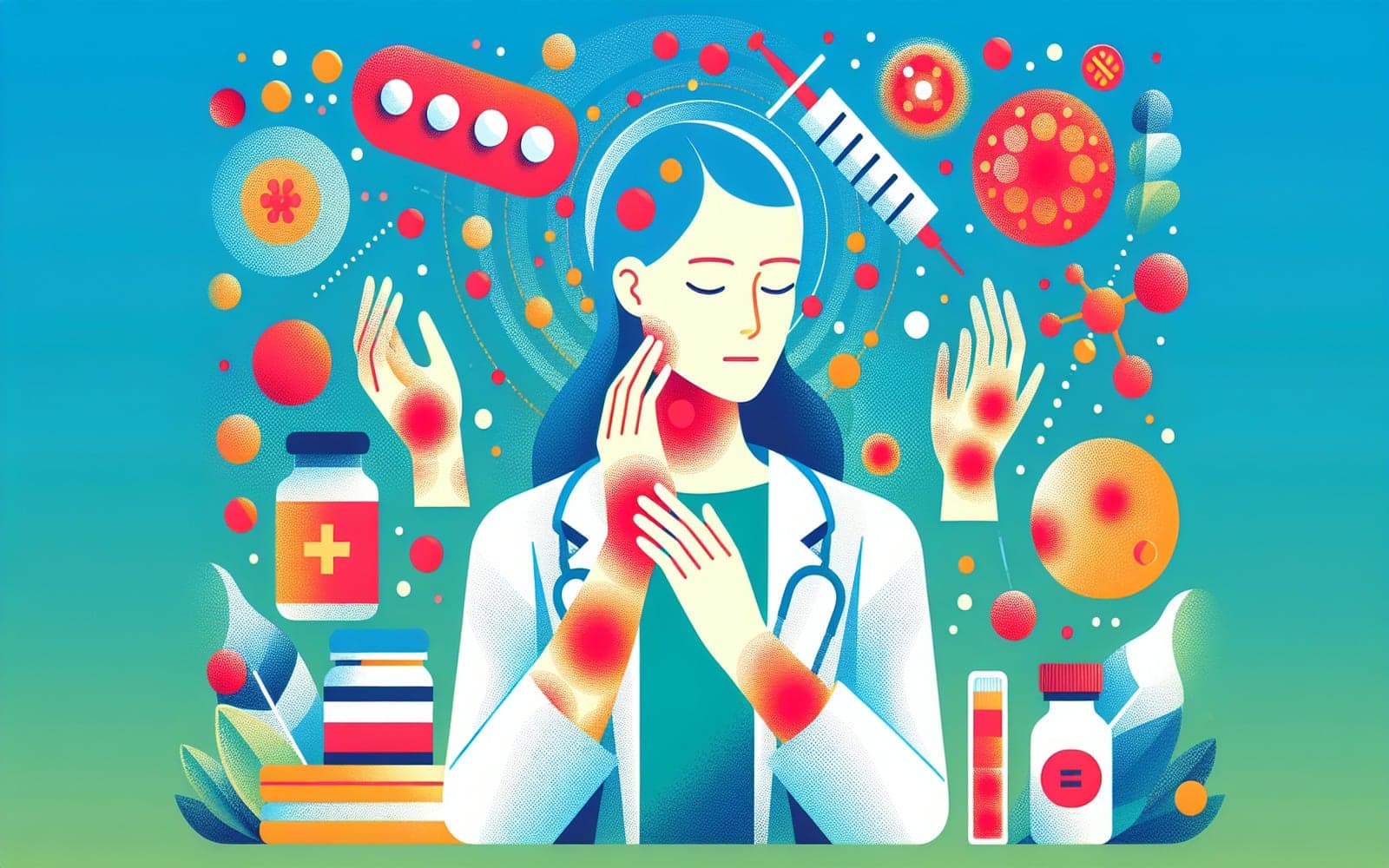What Are Hives? The Itchy Truth About Urticaria
Published: Sep 18, 2024

Medically reviewed by Alan Lucks | MD, Alan Lucks MDPC Private Practice - New York on September 18th, 2024.
Hives, also known as urticaria, are itchy, raised welts on the skin that affect up to 20% of people at some point in their lives. These pesky bumps can appear suddenly and vanish just as quickly, leaving many scratching their heads (and skin) for answers.
Contents
What Do Hives Look Like?
Hives appear as raised, red or skin-colored bumps called wheals. They can vary in size from tiny dots to large patches and may join together to form even larger areas called plaques. The center of a hive is often pale or white, surrounded by redness. These itchy bumps can pop up anywhere on the body and typically last for a few hours before fading away without a trace.
What Causes Hives to Appear?
Hives occur when certain cells in the skin release histamine and other chemicals. This can be triggered by various factors, including allergic reactions to foods or medications, infections, physical stimuli like pressure or temperature changes, and sometimes stress. In many cases, the exact cause remains a mystery. Some common triggers include insect bites, certain foods (like nuts or shellfish), medications (such as penicillin or aspirin), and viral infections.

Acute vs. Chronic Hives: What's the Difference?
Hives are classified as either acute or chronic based on how long they last. Acute hives resolve within 6 weeks and are the most common type. Chronic hives, on the other hand, persist for more than 6 weeks and may come and go for months or even years. While acute hives often have an identifiable trigger, chronic hives can be more challenging to pin down and may require further investigation by a healthcare professional.
Frequently Asked Questions
Yes, stress can trigger hives in some people.
Individual hives usually disappear within 24 hours.
No, hives are not contagious.
Yes, hives can affect people of all ages, including children.
Key Takeaways
While hives can be uncomfortable and sometimes alarming, they're usually harmless and can be managed with proper care and treatment.
If you're experiencing persistent or concerning hives, don't hesitate to chat with Doctronic, your AI health companion, for personalized advice and guidance.Related Articles
References
Kaplan AP. Urticaria and angioedema. In: Middleton's Allergy: Principles and practice, 7th, Adkinson NF, Bochner BS, Busse WW, Holgate ST, Lemanske RF, Simons FER (Eds), Mosby, St Louis, MO 2009. Vol 2, p.1063.
Zuberbier T, Asero R, Bindslev-Jensen C, et al. EAACI/GA(2)LEN/EDF/WAO guideline: definition, classification and diagnosis of urticaria. Allergy 2009; 64:1417.
This article has been reviewed for accuracy by one of the licensed medical doctors working for Doctronic. Always discuss health information with your healthcare provider.

